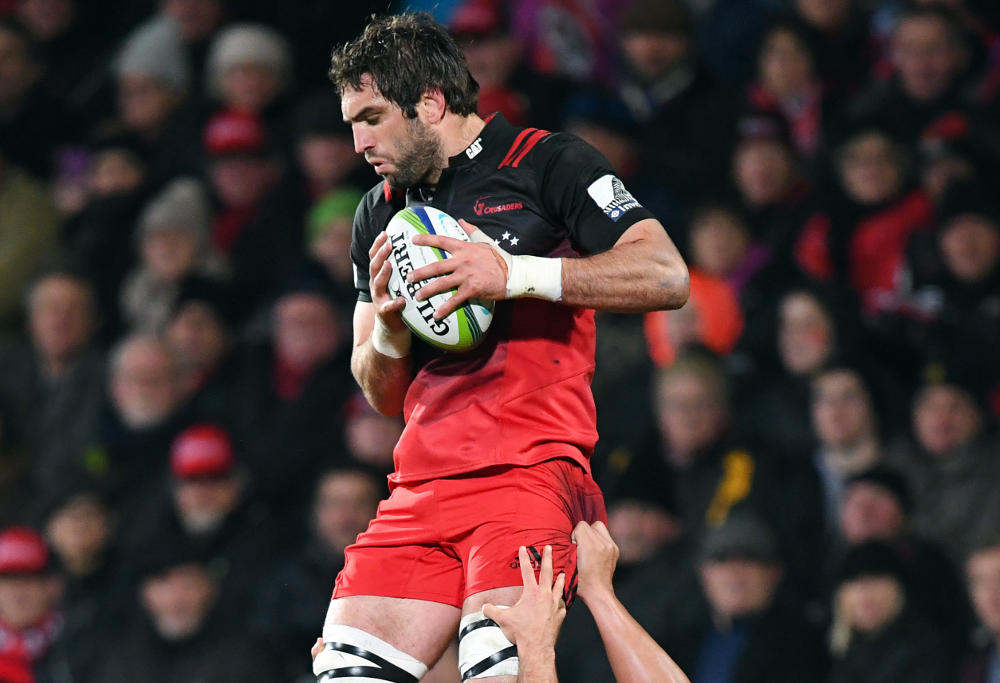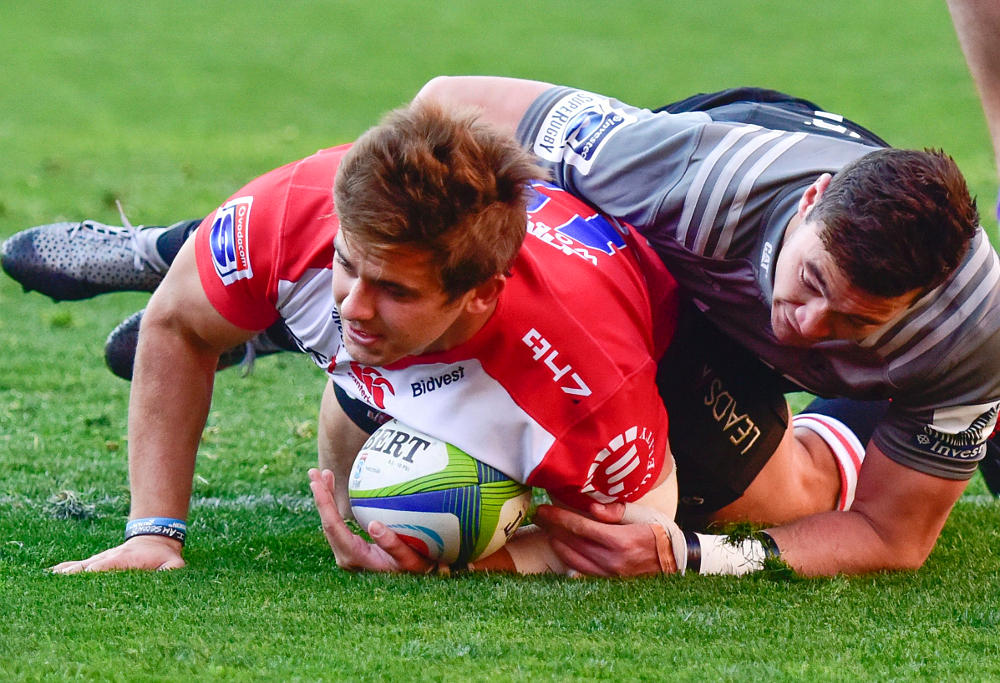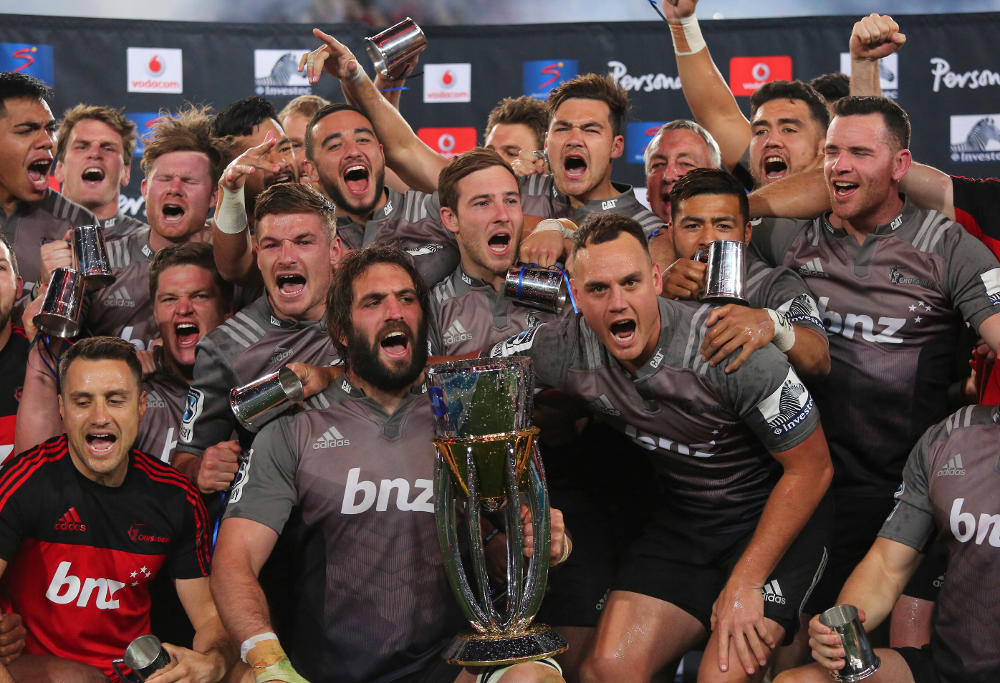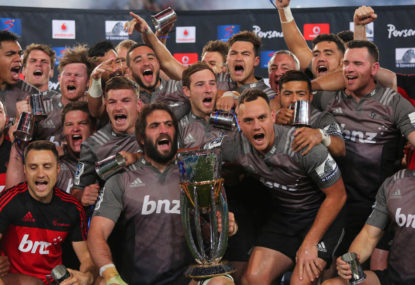The Crusaders’ clinical Super Rugby final win, 25-17 over the Lions, has showed once again that when matters are kept to rugby, the competition is not as broken as what it appears.
A near full-house at Ellis Park and two high-quality sides ensured that the occasion was worthy of a final and, with a strong narrative emerging for both winner and loser, the result was entirely fitting.
History says that Super Rugby finals aren’t won away from home. Certainly not by a team travelling to South Africa, with the only overseas precedent in 22 years being the Crusaders stealing a remarkable 20-19 win in Canberra in 2000, despite being dominated in the run of play.
Super Rugby finals aren’t usually won by a rookie coach either, which speaks to the ability of Scott Robertson to innovate, communicate effectively and learn from his setbacks (against the British and Irish Lions). It is also testament to the formidable winning culture that the Crusaders have maintained in making the final 12 times for what is now eight wins.
The comparison with Australia’s most recent winning sides, the Reds in 2011 and Waratahs in 2014, is telling. Both were worthy winners in seasons when playing strength and highly motivated coaches on an upswing happily coincided. But in both cases, success was fleeting, the magic lost as soon as it was created, there being no underlying culture of success to underpin the continuity needed to stay at the top end of the competition.
The Crusaders, however, are made of different stuff. The character that carried them through their greatest season – the earthquake year of 2011 – was precisely the same character that was on display when Mitch Hunt kicked his thrilling dropped goal against the Highlanders, and which this side took across the Indian Ocean for the final.
Character is one thing, rugby smarts is another, and Robertson and his coaching staff deserve great credit for getting right the things that the Hurricanes didn’t in their semi-final.
Despite skipping out to an early lead, just as the Hurricanes had done, there was a marked difference in approach. One was noticeably less chatter, with the Crusaders happier to focus on their own jobs and leave the refereeing up to Jaco Peyper.
Where the Hurricanes were all helter-skelter, running both the Lions and themselves ragged in the process, the Crusaders played within themselves, halves Richie Mo’unga and Bryn Hall keeping a balance between kick, pass and run that kept the Lions guessing, and which kept petrol in reserve for deeper into the game.
The Crusaders also elected not to compete intensely at the breakdown, keeping spare defenders in play to counter the expected Lions’ multiple waves of attack. It was thus ironic that their two early tries came from breakdown turnovers, courtesy of sloppy ball control from the Lions. It represented, in the circumstances, a huge bonus for the Crusaders.
Match statistics show that the Crusaders missed 39 tackles, usually an indicator of a thrashing, but in this case a misnomer. Many of these misses were a function of their rushing defence, where a Lions attacker was forced to step back infield, past the first defender, only be picked up by the covering screen. With spare men in the secondary instead of at the breakdown, even if a Lions attacker managed to step into a half gap, the Crusaders always had the numbers to stifle it.
Savvy defence was also able to keep a lid on Ruan Combrinck’s booming kicking game, three times forcing him to clear ineffectively off his weaker left boot.
The Crusaders main triumph, and probably the winning of the game, was their defensive lineout. Four times they repelled attempted maul/drives close to their line by the Lions, with Keiran Read, Luke Romano and Sam Whitelock throwing in crucial steals late in the game for good measure.

(AAP Image/SNPA, Ross Setford)
Most impressive was not just the Crusaders’ organisation and assertiveness in attacking the Lions’ lineout maul, but their discipline to do so in a way that never hinted at conceding a penalty, as so many sides resort to doing.
Robertson also came to the match with a clear plan to utilize his bench far earlier than is the norm. In the preliminary final against the Highlanders, Hall played all 80 minutes, yet this time he was one of a number substituted early; not because he wasn’t playing well, but because of a plan to overcome the twin threat of altitude and the Lions’ noted fast finish.
All Blacks inside centre Ryan Crotty was deservedly named man-of-the-match, although there were other strong contenders. Mo’unga was nerveless, taking the ball to the line and distributing beautifully off both hands, and prop Michael Alaalatoa enjoyed his finest hour in a Crusaders jersey.
During an interview last week, New Zealand Rugby Union CEO Steve Tew used flanker Matt Todd as an example of how New Zealand rugby is able to stay ahead of the pack. Todd, his management, the New Zealand Players Association and the New Zealand Rugby Union have all worked together to keep Todd in New Zealand, despite him being the target of lucrative offers from northern hemisphere clubs.
Despite Todd not being a first-choice All Black, Tew explained to me how his value to New Zealand rugby is profound. He has benefitted from being understudy to Richie McCaw, not only for his game, but now as a senior player himself, entrusted with passing on his knowledge and values, and with it, reinforcing the winning Crusaders culture to newer players.
All of that experience and leadership was on display in this final, Todd meeting the Lions head on, and never flinching on the tackle.
The Lions, buoyed by a swing in possession in the second half, and the injection of energetic halfback Faf du Plessis, eventually found a way to the line, with tries to Corne Fourie and Malcolm Marx, but it was always a matter of too little, too late.
For too much of the game they struggled to get the timing of their flat runners right, big match anxiety and the Crusaders defensive pressure jarring them to the extent they never truly discovered rhythm they took out of last weeks’ semi-final.
Coach Johan Ackermann was extremely calm and believing of his side at halftime. But Read’s try, only three minutes after the break – which was marked by Combrinck electing not to put his body on the line – crucially took the score out to 22-3. While the Lions fought bravely from there, that was a deficit that no amount of self-belief was going to overcome, particularly with the side a man down.

(Christiaan Kotze/AFP/Getty Images)
Before the match, I was expecting Kwagga Smith to be a major factor in the game. He was, but not in a way anybody could have predicted. Johan Ackermann spoke for many afterwards, critical of the decision to send Smith off on two counts; one that Smith’s action was “not outside of the law like a kick in the face or a punch, or dirty play”; and secondly, on the basis that 62,000 people don’t pay money to come to a final to have it ruined by it becoming a 15 versus 14 game.
Those complaining about the red card, or a law which allows for a player to be sent off for an action that is without intent, forget one thing. This law, which allows players to jump in the air to catch the ball safely, and its sanctions, works as a deterrent.
Rugby needs kids to take up the game, and for that to happen their mums and dads need to know that the game is safe. David Havili was shaken but unhurt after falling very awkwardly. But these instances are like Russian Roulette where, the more these situations occur, the more chance that a player, one day, is going to suffer a severe spinal injury and not get back up.
The day that happens, particularly if it is in a highly visible arena like a Super Rugby final, the sport will be in serious trouble.
Ever since the Highlanders’ Jason Emery received a red card and a lengthy suspension for a similar ‘no intent’ challenge on Willie Le Roux, players have mostly adapted well to the law and the logic behind it. Without the threat of a red card we would see more of these types of ‘innocent’ but dangerous challenges.
Instead, most players now use their judgment to do one of two things; arrive early and jump fairly for the ball, or hang back and stop short (thank you, Frank Costanza).
World Rugby undoubtedly has this law right and, to his credit, Jaco Peyper applied it correctly and without any fuss.
As for the argument that somehow it isn’t fair that the match is diminished as a contest? The onus is not on Peyper to ‘bend the rules’ a little to keep the game 15 versus 15. The onus is clearly on the players to play within the laws and suffer the consequences if they don’t. That’s how sport works.

(AP Photo/Phil Magakoe)
Ackermann’s disappointment is understandable, but while he leaves Johannesburg for Gloucester with two successive losses in the final, his legacy is certainly not diminished.
The Lions weren’t even in the competition four years ago, and what he and his co-coaches have done to not only develop a competitive team, but one that plays an exciting, attractive brand of rugby, in that short time, is nothing short of outstanding.
Earlier this season, after his move north was confirmed, Ackermann told me that he was confident that there were systems in place that would be strong enough to ensure that the identity of this team would withstand his departure.
That thesis will be tested in coming seasons. As Nick Bishop identified in his article last week, the Lions are lagging behind other South African sides in transformation compliance, so with natural attrition and changes in the ethnic composition of the side inevitable, there is a sense that the window for the Lions to win Super Rugby may have just closed.
On the other hand, if the Lions were able to share a beer with Robertson and senior Crusaders after the final, with a view to learning how to effectively cement an organisational culture that ensures consistent high performance, then these two finals losses will not have been wasted.
Get in touch with a Daikin dealer today so you don’t sit and suffer through another cold winter while watching the rugby this year. Trusted by many and suitable for the Australian lifestyle, Daikin really is The Best Air Anywhere.
































































































